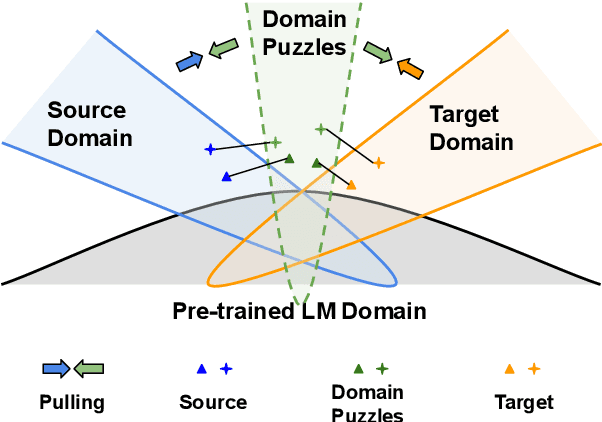Domain Confused Contrastive Learning for Unsupervised Domain Adaptation
Paper and Code
Jul 10, 2022



In this work, we study Unsupervised Domain Adaptation (UDA) in a challenging self-supervised approach. One of the difficulties is how to learn task discrimination in the absence of target labels. Unlike previous literature which directly aligns cross-domain distributions or leverages reverse gradient, we propose Domain Confused Contrastive Learning (DCCL) to bridge the source and the target domains via domain puzzles, and retain discriminative representations after adaptation. Technically, DCCL searches for a most domain-challenging direction and exquisitely crafts domain confused augmentations as positive pairs, then it contrastively encourages the model to pull representations towards the other domain, thus learning more stable and effective domain invariances. We also investigate whether contrastive learning necessarily helps with UDA when performing other data augmentations. Extensive experiments demonstrate that DCCL significantly outperforms baselines.
 Add to Chrome
Add to Chrome Add to Firefox
Add to Firefox Add to Edge
Add to Edge